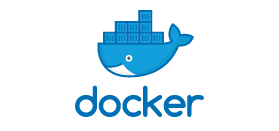Demystifying Docker: A Comprehensive Guide to Containerization
Posted By Coding_Dynasty a month ago
Reading Time: 3 Minutes

In recent years, Docker has emerged as a game-changer in the world of software development and deployment. Its revolutionary approach to containerization has transformed the way developers build, ship, and run applications. In this article, we'll delve into the intricacies of Docker, exploring its key concepts, benefits, and practical applications.
Understanding Docker:
At its core, Docker is an open-source platform that enables developers to package their applications and dependencies into lightweight, portable containers. These containers encapsulate everything needed to run the application, including code, runtime, system tools, libraries, and settings. Unlike traditional virtual machines, Docker containers share the host operating system kernel, making them more efficient and lightweight.
Key Concepts:
-
Images: Docker images serve as the blueprints for containers. They are immutable snapshots that contain the application code, along with its dependencies and runtime environment.
-
Containers: Containers are instances of Docker images. They provide an isolated environment for running applications, ensuring consistency across different environments.
-
Dockerfile: A Dockerfile is a text file that contains instructions for building Docker images. It defines the steps needed to create a custom image, including base image selection, environment configuration, and application setup.
-
Docker Hub: Docker Hub is a centralized repository for Docker images. It allows developers to share and discover pre-built images, streamlining the development and deployment process.
Benefits of Docker:
-
Portability: Docker containers are platform-agnostic, allowing applications to run consistently across different environments, from development to production.
-
Isolation: Containers provide a high degree of isolation, ensuring that applications run independently without interfering with each other or the underlying host system.
-
Efficiency: Docker's lightweight nature enables faster deployment and scaling of applications, leading to improved resource utilization and reduced infrastructure costs.
-
Consistency: With Docker, developers can eliminate the "it works on my machine" problem by ensuring that applications run consistently across all environments, from development to production.
Practical Applications:
-
Microservices Architecture: Docker is well-suited for building microservices-based applications, where each component runs in its own container, facilitating scalability, agility, and fault isolation.
-
Continuous Integration/Continuous Deployment (CI/CD): Docker plays a crucial role in CI/CD pipelines by providing a consistent environment for testing, building, and deploying applications, leading to faster release cycles and improved software quality.
-
DevOps Automation: Docker simplifies the deployment and management of infrastructure through tools like Docker Compose and Kubernetes, enabling teams to automate the provisioning, scaling, and orchestration of containers.
Docker has revolutionized the way developers build, ship, and run applications, thanks to its innovative approach to containerization. By encapsulating applications and dependencies into lightweight containers, Docker offers portability, efficiency, and consistency, making it an indispensable tool in modern software development. Whether you're building microservices-based architectures, implementing CI/CD pipelines, or automating DevOps workflows, Docker empowers you to streamline your development process and deliver value to your users faster than ever before.